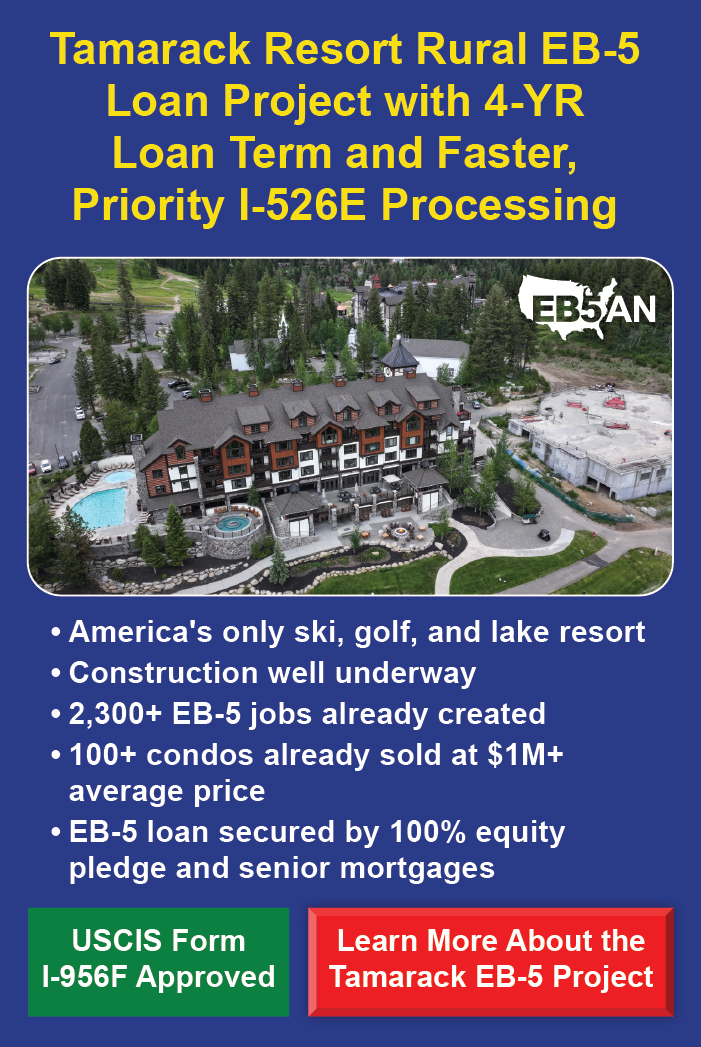COVID-19 is the most devastating disease outbreak the world has seen since the Spanish Flu. While less deadly than some other outbreaks, the virus has left almost no country on Earth unaffected. As we all, as a planet, hunker down in our homes and avoid social contact, the EB-5 program carries on.
United States Citizenship and Immigration Services (USCIS) closed its offices to the public on March 18, 2020, but the Immigrant Investor Program Office (IPO) continues its work, which does not require social contact with the public. Even in the midst of the COVID-19 pandemic, the IPO is churning out adjudications for I-526, I-829, I-924, and I-485 petitions. In fact, processing times for I-526 petitions are even up, probably because the IPO cannot engage in all the other activities it might otherwise undertake.
Visa Appointments Pushed Back
While I-526 approvals continue to be issued as usual, EB-5 investors at the stage of applying for their U.S. conditional permanent resident status are being held back. The delay is the result of USCIS’s mass cancelation of visa appointments, which are not to resume until the economy is back up and running. As of April 8, USCIS closures are scheduled to continue until at least May 3. Any EB-5 investors whose visa appointments are scheduled during this period may receive notices to reschedule, although at present, when visa appointments will resume is up in the air. The same applies to EB-5 investors who had scheduled biometric appointments during this period.
Use of Electronic Signatures Temporarily Permitted
USCIS does not ordinarily accept electronic signatures, but it has reversed its stance until the COVID-19 crisis dies down. For documents that usually require “wet” signatures, USCIS will temporarily accept electronic signatures during the pandemic. Despite this new measure, however, USCIS may still request original copies at its discretion, so EB-5 investors must still keep original copies handy. Investors may see their petition denied if they fail to produce documents that USCIS requests.
Extended Deadlines for RFEs and NOIDs
USCIS has also introduced a measure to help ease the minds of those who have received Requests for Evidence (RFEs) and Notices of Intent to Deny (NOIDs). Investors who receive an RFE or NOID dated anywhere between March 1 and May 1, 2020, have an extended deadline by which they need to respond. As long as EB-5 investors who receive an RFE or NOID in the defined time period respond within 60 days of the deadline stipulated on the document, USCIS will take no punitive actions.
Suspension of Visa Services at Embassies
In response to the COVID-19 global health crisis, USCIS suspended routine visa services at all U.S. consulates and embassies abroad on March 20, 2020. While USCIS is still providing emergency services, accessible via the USCIS Contact Center, EB-5 investors are unable to apply for EB-5 visas during this period. The misfortune of overseas investors may be good news for EB-5 investors already residing in the United States, however—USCIS has not ceased the processing of I-485 Petition to Adjust Status forms. This means that domestic EB-5 investors may receive their U.S. green cards much earlier than anticipated.
False EB-5 Rumors Circulating
As the global health crisis rages on, rumors of unprecedentedly large changes to the EB-5 program have been circulating. Attributing the move to Senator Lindsey Graham, the rumor suggests that Trump is considering allocating an extra 65,000 visas to the EB-5 program and lowering the minimum investment amount to $450,000. The rumors have invoked a wave of media criticism toward the EB-5 program, and all for naught—Senator Graham unequivocally denies the claims. The rumors are unfortunate, hurting the EB-5 program right when it has an unprecedented opportunity to aid the U.S. economy.







